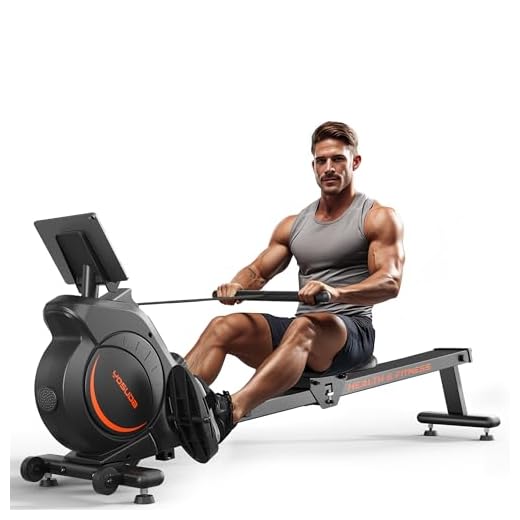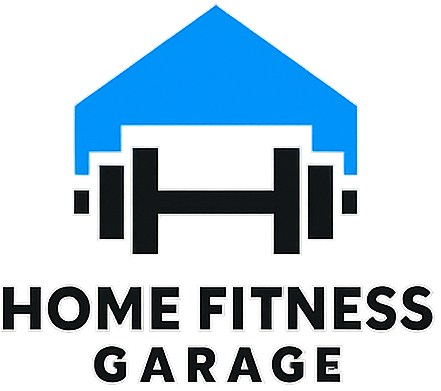



Rowing Machines
Rowing machines provide an excellent way to engage in a full-body workout, offering both cardio and strength training benefits. These versatile machines simulate the action of rowing on water, making them appealing for those looking to increase their fitness levels without the impact associated with running or other high-impact exercises. Many models come equipped with adjustable resistance settings, allowing users of all fitness levels to tailor their workouts to their personal needs and goals.
When selecting a rowing machine, features such as monitor displays, construction quality, and comfort should be prioritized. A good monitor will track essential metrics, including time, distance, calories burned, and stroke rate. High-quality construction ensures durability, which is important for longevity, while a comfortable seat and ergonomic design make longer sessions more enjoyable. A thoughtful selection can enhance the overall rowing experience, making it easier to maintain a consistent workout routine.
Features to Look for in a Rowing Machine
When choosing a rowing machine, consider the type of resistance it offers. Options typically include air, magnetic, and water resistance. Air resistance machines provide a dynamic experience, adjusting the intensity based on your effort. Magnetic resistance can be quieter, making it ideal for home use. Water resistance offers a similar feel to rowing on a real body of water, which many find appealing.
Another important feature to evaluate is the monitor display. Look for a model that provides essential metrics such as time, distance, strokes per minute, and calories burned. A backlit display can enhance visibility, especially in low-light conditions. Additionally, some models include pre-programmed workouts or heart rate monitoring, which can add variety and help track your progress over time.
Group Rowing Classes
Joining a group rowing class offers a unique way to engage in cardiovascular exercise while building camaraderie. The environment promotes motivation as participants strive to keep up with one another and challenge their limits. Instructors guide the sessions, ensuring that members maintain proper form and technique, which makes the workout both effective and safe. Additionally, the collective energy in the room can transform a workout into an enjoyable experience.
These classes provide an opportunity to connect with others who share similar fitness goals. Engaging in workouts together fosters a sense of community and accountability, encouraging individuals to push through tough sessions. The social aspect of group rowing not only enhances the overall experience but can lead to lasting friendships formed through shared struggles and achievements in fitness.
The Social Benefits of Working Out Together
Joining a group rowing class offers a unique opportunity to bond with others while engaging in a challenging workout. The collaborative nature of rowing creates a sense of camaraderie among participants. Sharing the experience of pushing through tough workouts builds lasting friendships. Motivation flourishes in this environment, as individuals encourage one another to reach their fitness goals.
Moreover, the atmosphere of group classes fosters a supportive community. Members often celebrate each other’s achievements, whether big or small. Feeling part of a team can enhance an individual’s commitment to fitness, making it easier to stay accountable. This collective energy allows for a more enjoyable and engaging experience, transforming what might feel like a solitary effort into a fun and social occasion.
Incorporating Rowing into Your Cross-Training
Adding rowing to your cross-training regimen can significantly enhance overall athletic performance. The low-impact nature of rowing makes it an ideal option for those looking to reduce the risk of injury while still challenging themselves. It engages multiple muscle groups, from the legs to the core to the upper body, providing a full-body workout that complements other exercises. This diversification aids in muscle balance and can help prevent overuse injuries commonly seen in athletes who focus on a single discipline.
Rowing also serves as an excellent cardiovascular workout, improving endurance and lung capacity. Incorporating it into your routine helps develop stamina that translates well into other sports, whether it be running, cycling, or swimming. As an aerobic exercise, it increases heart function and boosts metabolic rates, allowing for optimal performance across various activities. By blending rowing with other training components, athletes can cultivate strength and resilience, paving the way for both improved performance and greater enjoyment in their chosen sports.
Enhancing Your Performance in Other Sports
Rowing serves as a dynamic cross-training option, providing benefits that extend to various sports. It engages multiple muscle groups, promoting endurance, strength, and flexibility. The full-body nature of rowing strengthens the core, which is vital for stability and power generation in many athletic pursuits. Athletes participating in sports such as soccer, basketball, or tennis often find improved performance through enhanced cardiovascular fitness and muscular coordination achieved via rowing.
Additionally, the rhythmic and repetitive motion involved in rowing enhances aerobic capacity, allowing athletes to sustain higher levels of exertion longer. This can translate into better stamina during games or competitions, giving a competitive edge. Incorporating rowing into a training regimen not only diversifies a workout routine but also reduces the risk of overuse injuries commonly associated with repetitive activities in a single sport. Training in this way creates a well-rounded athletic profile, ultimately leading to improved overall performance.
FAQS
What are the benefits of rowing as a cardio workout?
Rowing provides a full-body workout that engages multiple muscle groups, improves cardiovascular endurance, and can burn a significant number of calories. It also enhances strength, flexibility, and posture.
How can I choose the right rowing machine for my home?
Look for features such as adjustable resistance levels, a comfortable seat, a user-friendly display, and a sturdy frame. Consider your space requirements and whether you want a foldable model for easy storage.
Are group rowing classes suitable for beginners?
Yes, many group rowing classes cater to all fitness levels, including beginners. Instructors typically provide guidance on proper technique and allow participants to progress at their own pace.
Can rowing help improve my performance in other sports?
Absolutely! Rowing enhances cardiovascular fitness, builds core strength, and develops muscular endurance, all of which can positively impact your performance in various other sports.
How often should I incorporate rowing into my workout routine?
For optimal results, aim to include rowing in your routine 2-3 times per week, balancing it with other forms of exercise to prevent overuse injuries and maintain overall fitness.
Related Links
Historical Evolution of Rowing Machines in Home Fitness
Why Rowing Machines are a Great Addition to Your Home Gym
Roundup of Best Rowing Machines for Different Budgets
Review of the Top 5 Rowing Machines for Home Use
7 Essential Features to Consider When Buying a Rowing Machine
